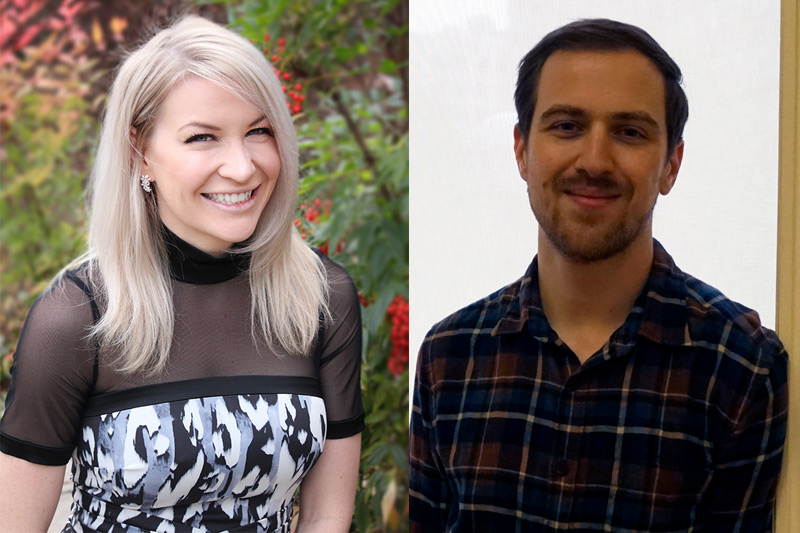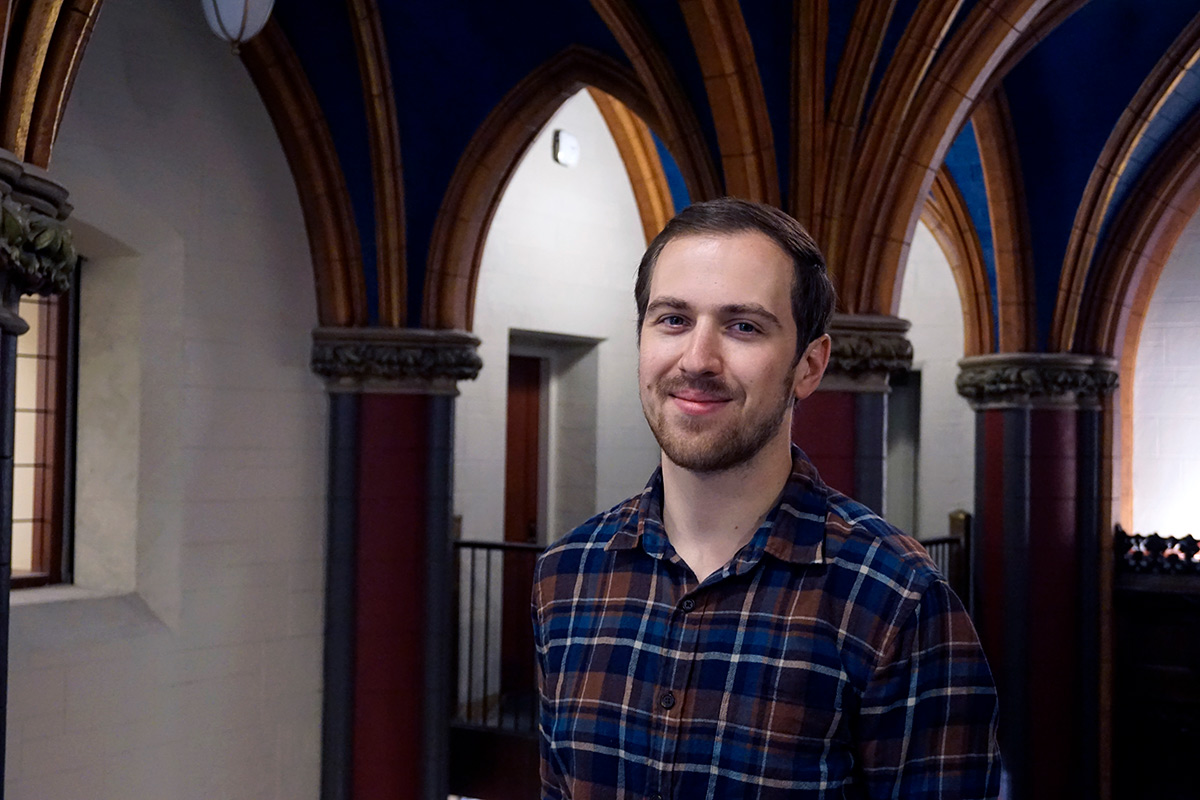Science is all about discovery — and for students at TC’s Resilience Center for Veterans & Families, self-discovery as well.
“Our students come in with their own military experiences, and they merge with the center and new ideas happen,” says the Center’s Director, George Bonanno, Professor of Clinical Psychology, whose groundbreaking work has overturned conventional wisdom about how human beings respond to loss and trauma. “And that’s the real gift of it. We don’t know where it’s going to go.”
Until now, the military experiences of Bonanno’s funded doctoral students have been the firsthand sort. Meaghan Mobbs, a fourth-year student who is TC’s David & Maureen O’Connor Scholar, is a former U.S. Army Captain from a military family. Together with Bonanno, she is helping to create a new focus on the “transition stress” veterans experience in returning to civilian life as a more pervasive mental health issue than post-traumatic stress disorder (PTSD), which has traditionally garnered more attention. A former student, Joseph Geraci, who received his doctorate in 2018, is a Lieutenant Colonel whose own struggles after losing close friends in combat have led him to focus on counseling for veterans.

THE GIFT OF NEW PERSPECTIVES Students such as Hart and Meaghan Mobbs (left) have helped shape the work of TC's Resilience Center through their own lines of inquiry.
But for Roland Hart, a first-year doctoral student who is the Resilience Center’s inaugural John Khoury Fellow, the military connection is a couple of steps removed, and the pathway that led to TC and the Center has been a bit more circuitous.
[John Khoury, who has generously funded the fellowship in his name, is Founder and Managing Partner of Long Pond Capital, a value-oriented investment management firm which focuses on investing in real estate and real estate related companies.]
As an undergraduate at Drake University in Des Moines, Iowa, Hart, whose parents are jazz musicians, double-majored in classical clarinet and psychology.
“I thought I wanted to be a music therapist,” he says.
Seeking research experience in psychology, Hart just happened to find his way to the lab of psychologist Steven Lancaster (now at Bethel University in Minnesota), himself a military veteran, who was leading a project to create a Warrior Identity Scale. The work ultimately determined that certain aspects of military identity among veterans — particularly interconnectedness and seeing the military as a family — were associated with symptoms of PTSD and depression while other aspects, such as regard towards the military, correlated with positive outcomes.
Hart found himself fascinated by the work — and so did his grandmother.
“She talked about her experience with my grandfather after he came back from fighting in Korea,” he says. “She described him as jumpy – and throughout his life, when there was a loud sound, he’d kind of jump and then be very on edge. He never received a formal PTSD diagnosis that I’m aware of, but he struggled with related issues for a while. He got to a better place, but it affected my grandmother and family for decades.”
In 2013 and 2014, Hart earned a master’s in clinical psychology at TC. He took a course with Bonanno and also worked at New York University’s Steven A. Cohen Military Family Center, where he explored the biological mechanisms of PTSD and brain injury in post-9/11 veterans and heard firsthand from many veterans about their dissatisfaction with the kinds of treatment available to them. For the past two years he has served as a junior research scientist at NYU, working with the Army’s Family Advising Program to improve their models for substantiating domestic violence, child abuse and neglect and other forms of maltreatment in military families, as well as studying “light-touch” interventions (via mobile phones and books) for airmen and their families.
Now back at TC, Hart is in the process of taking on management of a major new study of transition stress. The study will be unique in following soldiers from their final six months of active duty through discharge and for several months on into civilian life.
Soldiers go into the Army at age 18, and when they come out, they transition to something totally different and unfamiliar, while their peers who went to college are already in their first jobs. We’ll be tracking a very large number of veterans across this transition point in their lives, so we’ll have very rich data.
—Roland Hart
“Soldiers go into the Army at age 18, and when they come out, they transition to something totally different and unfamiliar, while their peers who went to college are already in their first jobs,” he says. “We’ll be tracking a very large number of veterans across this transition point in their lives, so we’ll have very rich data — and even more so because George is an expert in latent growth mixture modeling, a statistical technique which helps you identify sub-groups and trajectories within the data set.”
Hart says he is particularly interested in learning how “coping flexibility” — the ability to adjust one’s behavioral response to different situations and challenges – predicts well-being or pathology.
“I think there’s definitely a broader application to the general population from this work,” he says. “What we learn about the underlying mechanisms for adjustment and coping flexibility will be applicable to everyone.”
Hart is planning to be flexible about his own future as well. “Right now, I see myself doing military and veterans’ research at either a hospital or a university. But the take-away from my friends who’ve done doctoral programs is that your interests and goals change. You’re learning so much and having so many new experiences. So really, anything is possible.”
